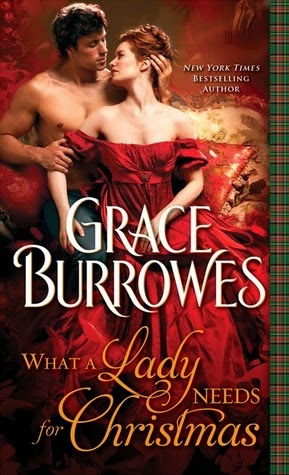The essence of a memorable Christmas gift is when somebody gives us the present we didn’t admit to ourselves we needed. We all know people who have the knack of finding these gifts. They can reduce us to tears with tickets a major league game, or turn the noisiest, most restless child into one big, beaming, silent smile.
Joan Flynn, from my new romance WHAT A LADY NEEDS FOR CHRISTMAS, has given
up on such gifts. She’s fading into Spinster territory, watching all the younger, prettier girls snag the handsome, wealthy fellows. Part of her knows an empty match is worse than no match at all, but another part of her is growing tired, lonely, and losing her balance.
Joan slips, and having already given up on fairy tales, she must now become yet more pragmatic. A husband—nearly any husband—will solve the worst of her problems, even if he costs her the last of her dreams.
So she settles for the man she can have, a mill owner who’s also a widower. Dante Hartwell is patient with his children, a good provider, protective of his sister, and already familiar with the disappointments of a marriage based on practicality.
But he’s a commoner, he’s not aristocratically handsome, he’s in trade, and he and Joan are not remotely in love. In short, Dante Hartwell is the present with the wrapping paper torn at the corner, the bow smashed, and the ribbon not quite the right color to match the bow—but he’s willing to offer Joan his name.
He’s also willing to give the marriage a good faith effort, and that’s all he asks of Joan. He doesn’t expect her to be beautiful and witty, which is probably the first gift of friendship: With Dante, Joan can be herself.
The gifts pile up from there: Dante gives Joan honesty, no airs and graces,no manly arrogance. He gives her a role in his children’s lives and is grateful to her for taking an interest in them.
Nobody has been grateful to Joan before.
Dante is protective of Joan. He doesn’t expect her to manage all of life’s trials on her own, and that—that offer of his simple, husbandly interest in her problems—is the first real support Joan has had in years, maybe ever. Better still, Dante shares his burdens with Joan, and again, she
can be useful to others, not merely ornamental, or worse—a bother.
Joan begins to see that she’s married very well indeed—not an aristocrat obsessed with appearances and manners, but a good, decent, kind, honest man.
In short, the unprepossessing package held a true gentleman, a hard working man who becomes to Joan, the most wonderful possible Christmas gift, the very one she needed but would never have thought to give herself.


No comments:
Post a Comment
Note: only a member of this blog may post a comment.